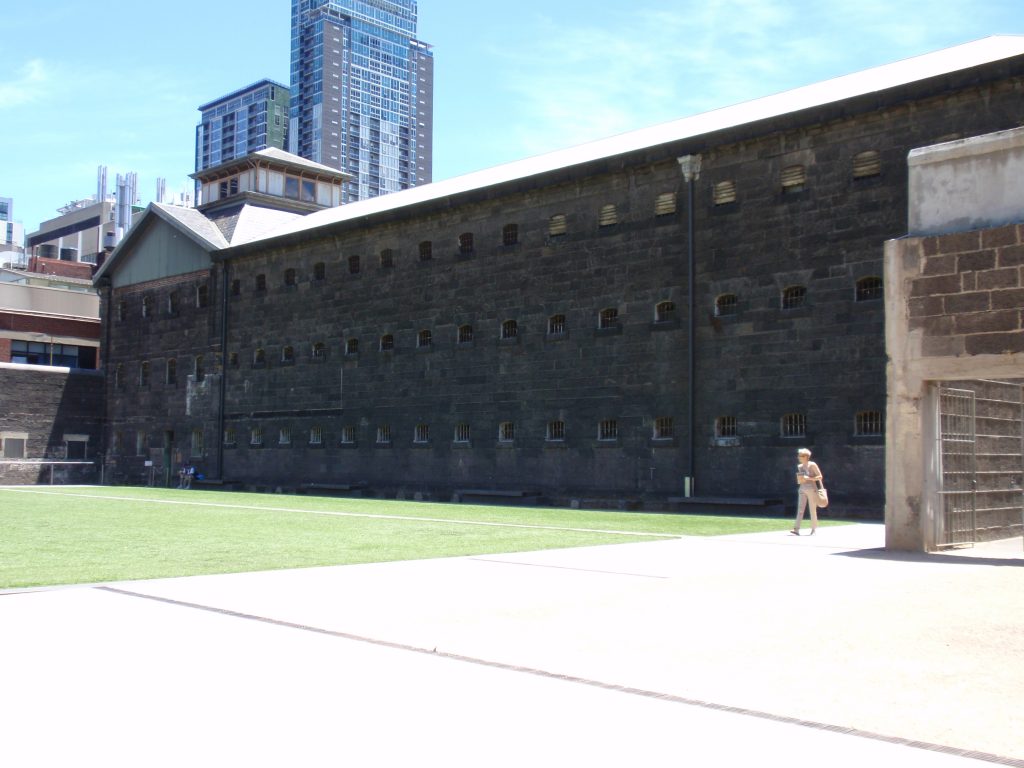
The Old Melbourne Gaol in downtown Melbourne is where famed bandit Ned Kelly spent his last few days before he was hung for robberies in 1880. For those who are unaware this outlaw icon, Ned Kelly was a famous, or rather infamous man who lived over 150 years ago (1855 to 1880 to be exact). He was the son of Irish settlers who lived in a rural part of the Victoria state of Australia. At the age of 14, Kelly was arrested for assaulting a Chinese farmer, but the charges were soon dropped. A year later, he was sentenced to six months for assault, and in 1871, he was jailed on the charge that he was riding a stolen horse when Kelly claimed it was “borrowed”; for that, he was sentenced to years in jail at the age of 16. After witnessing the desecration of his family’s land by British authorities, specifically the British authorities figures who jailed him, he formed a posse of bandits and went around Australia committing acts of robbery. But he claimed he was standing up for the little guy, specifically against the British status-quo. In a nutshell, he was Australia’s version of Robin Hood, sans the bow and arrow, and the men in tights. The Kelly gang, which included his younger brother Dan and two friends of his, had killed four men including three policemen, robbed two banks, taken hostages, stolen horses, cut telegraph wires, and tried to derail a train. On June 28th, 1880, the Kelly gang made their final act of defiance in the town of Glenrowan. In his last standoff, Ned Kelly fought off the troopers while dressed in a homemade suit of armor; his most notable piece was a crude iron helmet he constructed, hence his nickname, “The Iron Outlaw”. With guns firing left and right, Kelly was shot in the legs, arms, and groin more than 20 times before being subdued. In the bloody aftermath, his entire gang was killed. To this day, Glenrowan is considered Ned Kelly’s “Waterloo”. On November 11, 1880, after an illustrious career of dodging the authorities and skirting the law, Ned Kelly was executed by hanging at the Melbourne Gaol, at the age of 25. Many Australians even petitioned for his release, but it did no good. In the annals of history, many famous people have had their last words uttered and immortalized. In the American Revolution, Nathan Hale uttered, “I regret that I have one life to give for my country” before he was hanged after British forces captured him as a spy. Julius Caesar uttered, “Et tu, Brute?” in the rotunda of the Roman Senate as he was stabbed to death. For Ned Kelly, his final words were: “Ah well, I suppose it has to come to this. Such is life.” It was a more poetic way of saying “C’est La Vie”.


